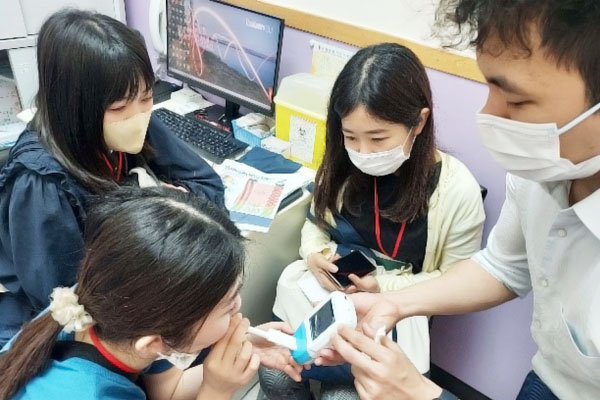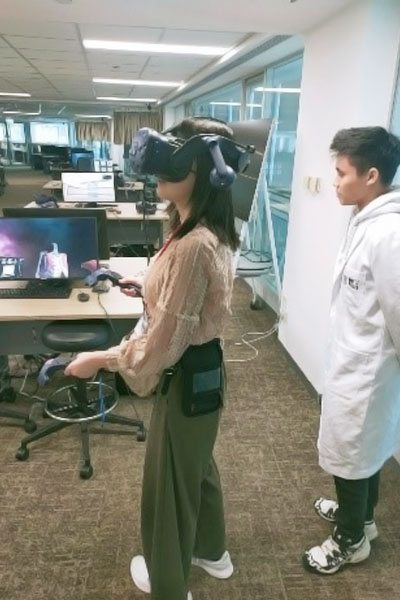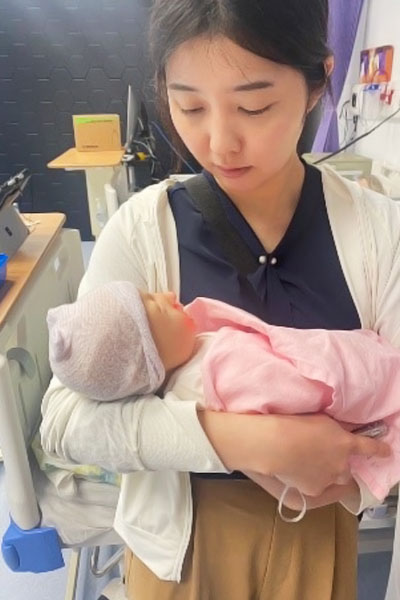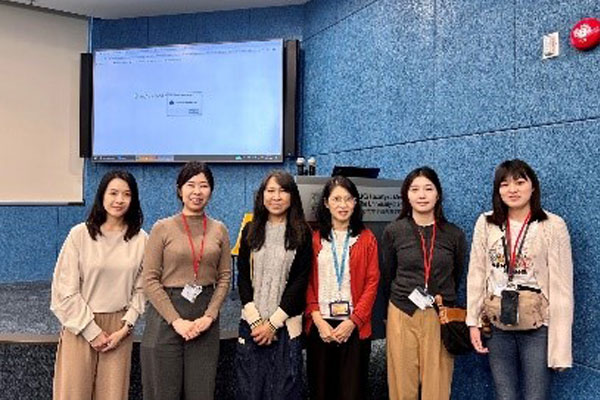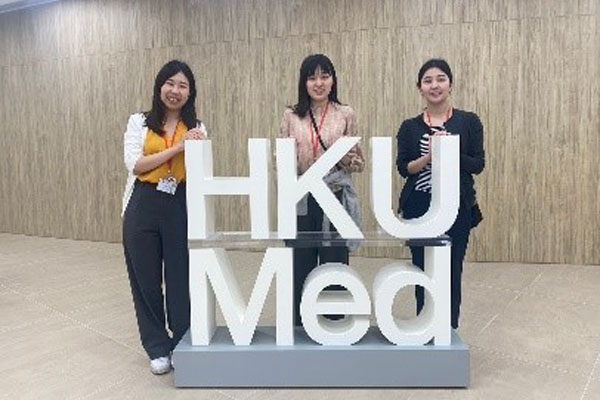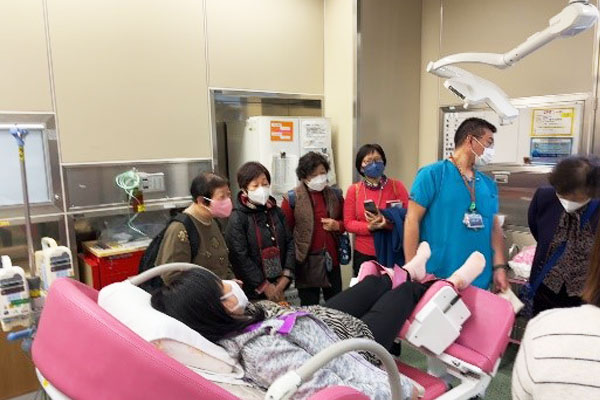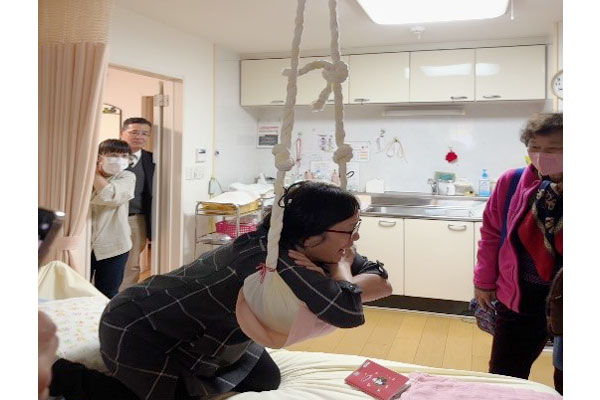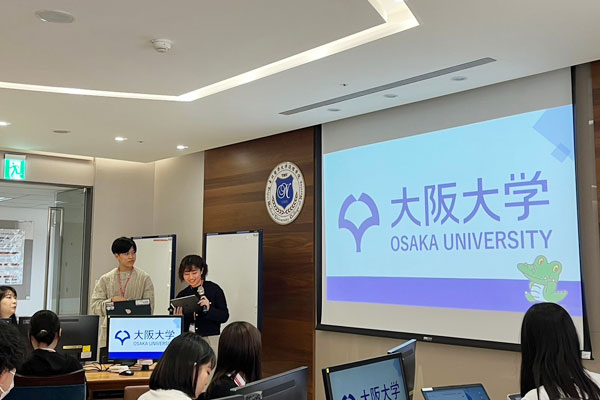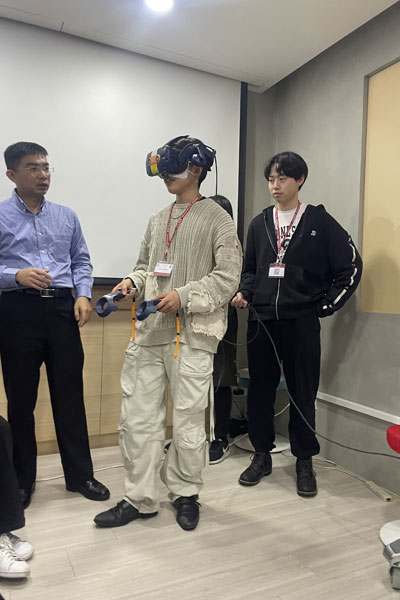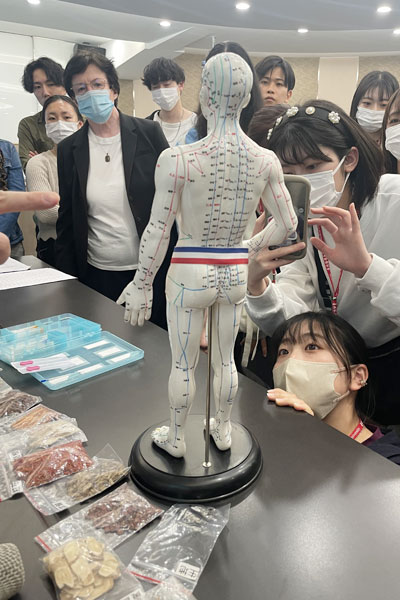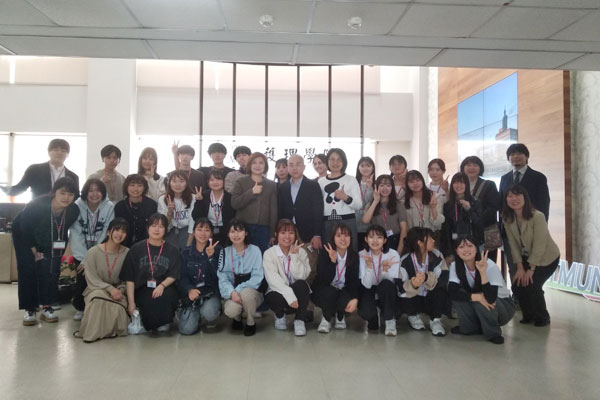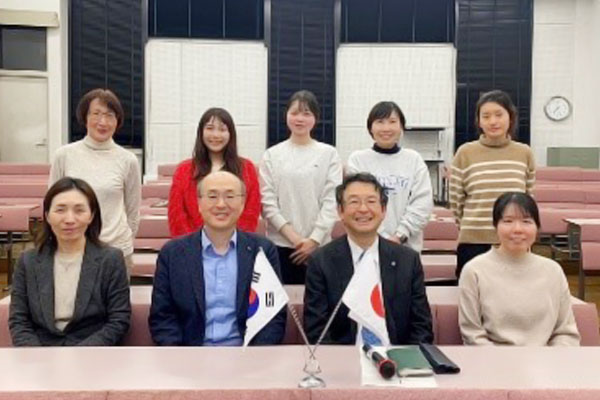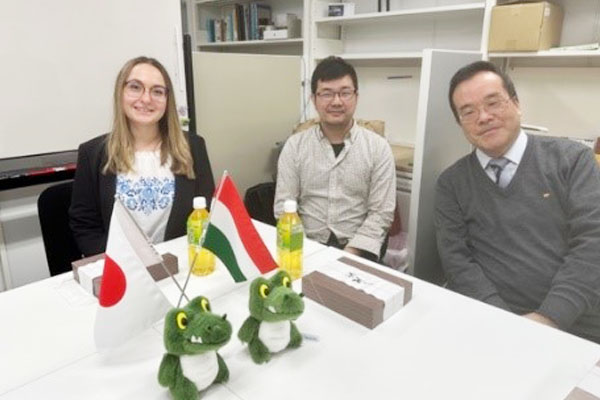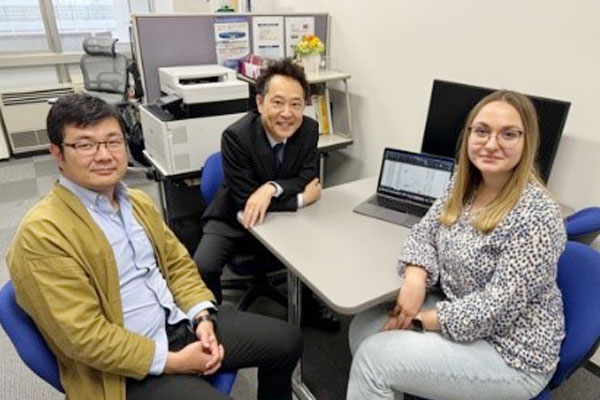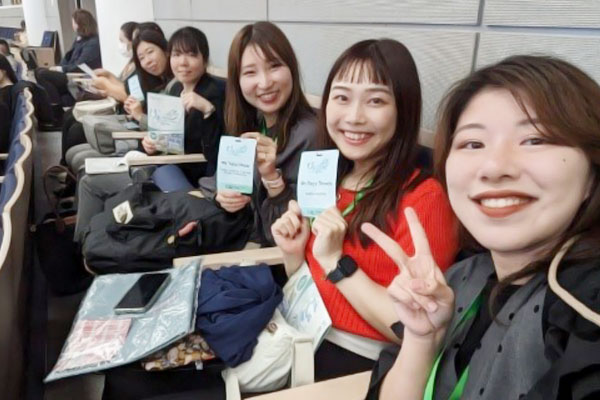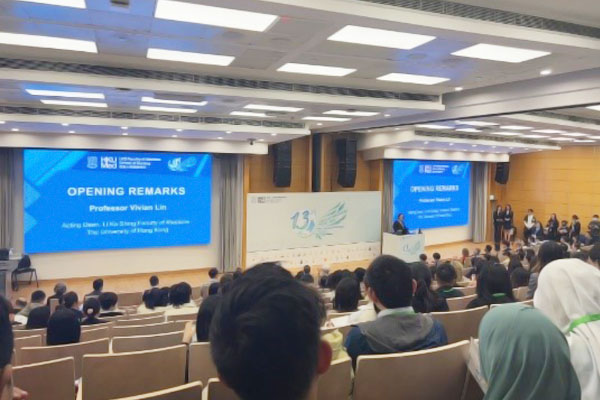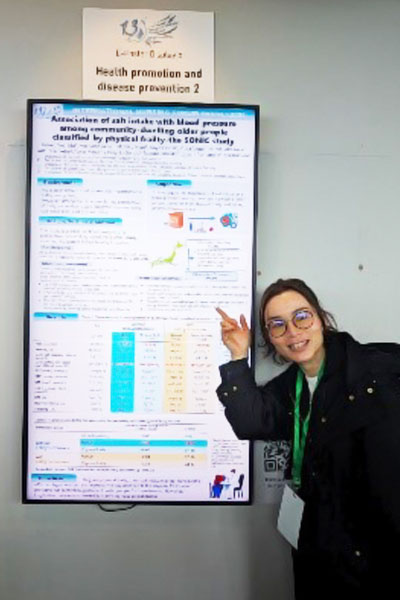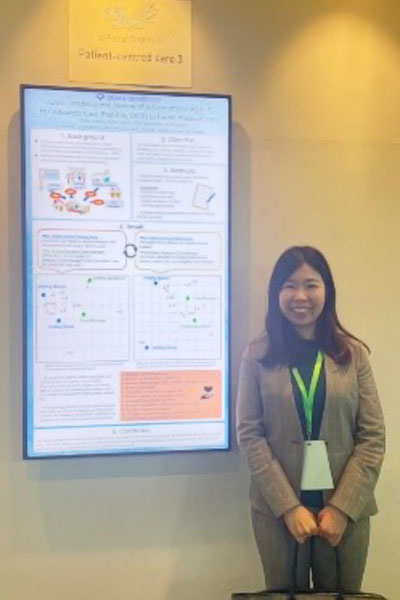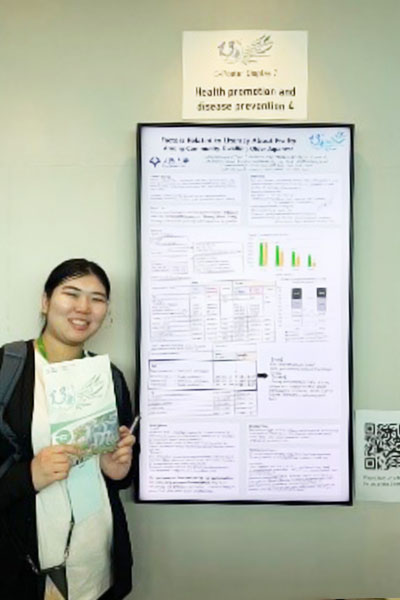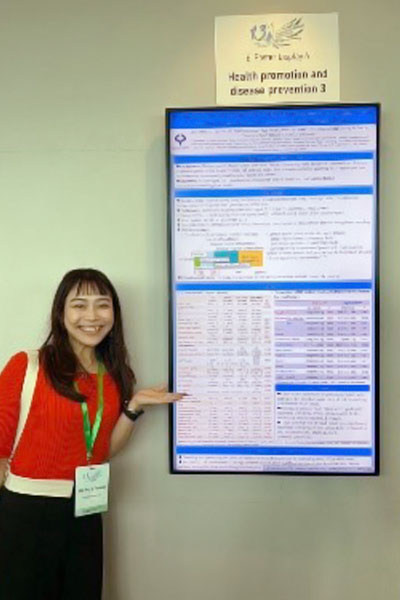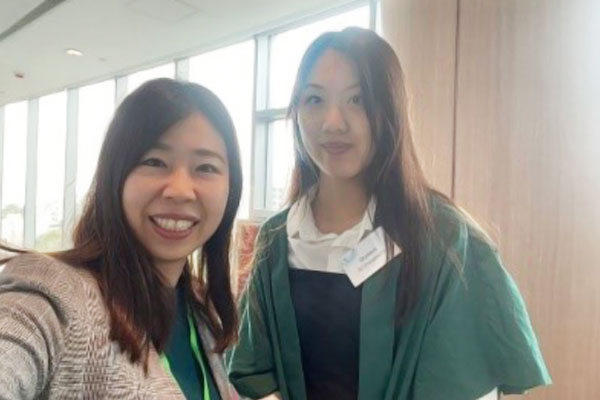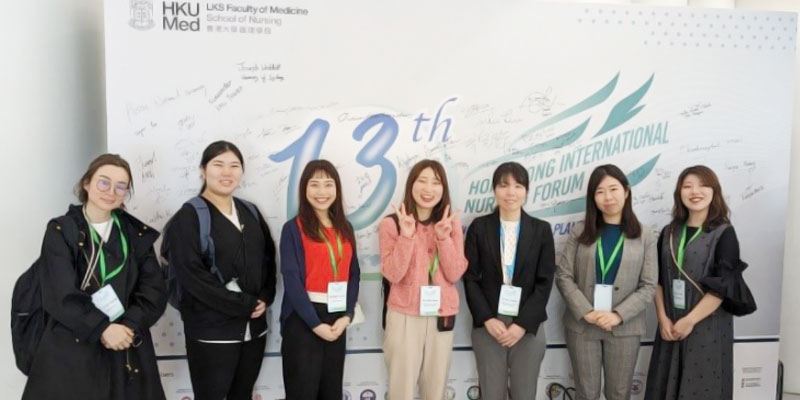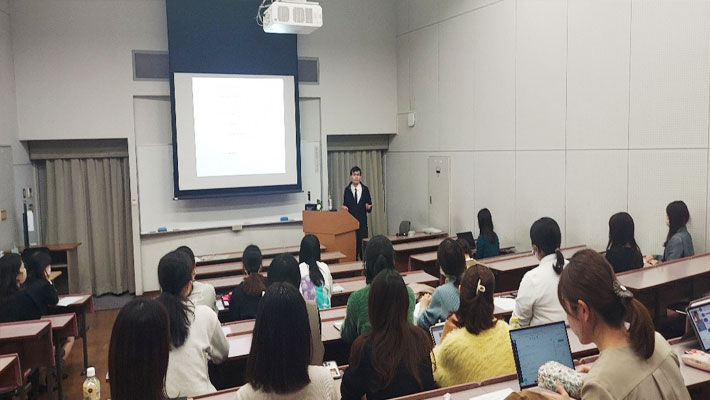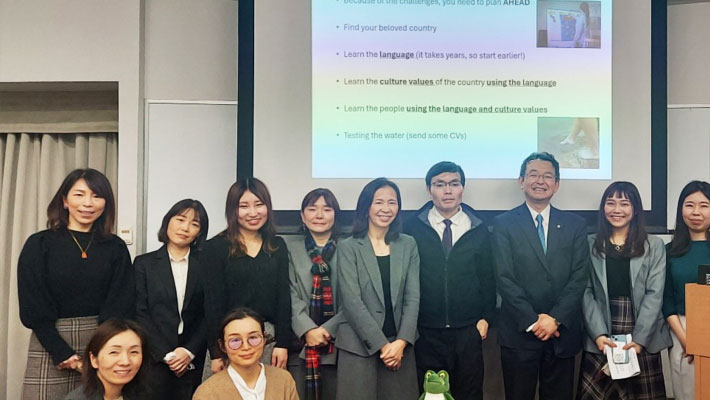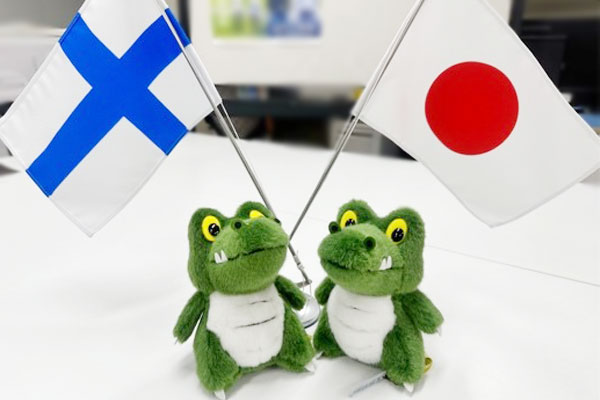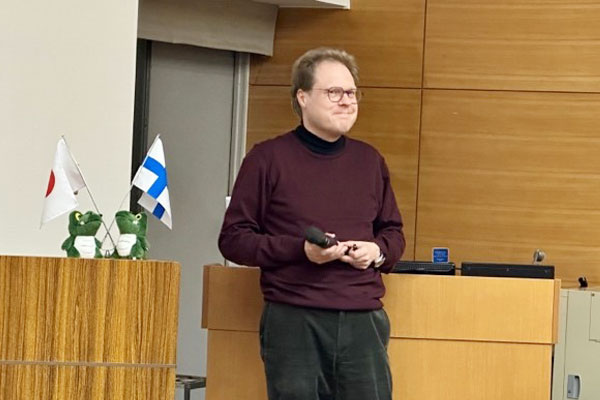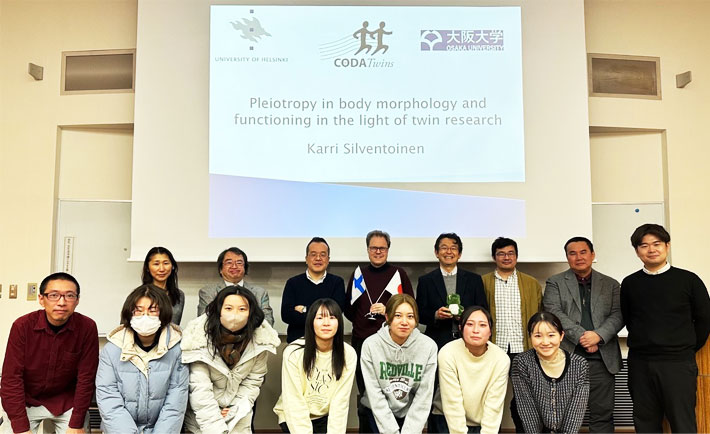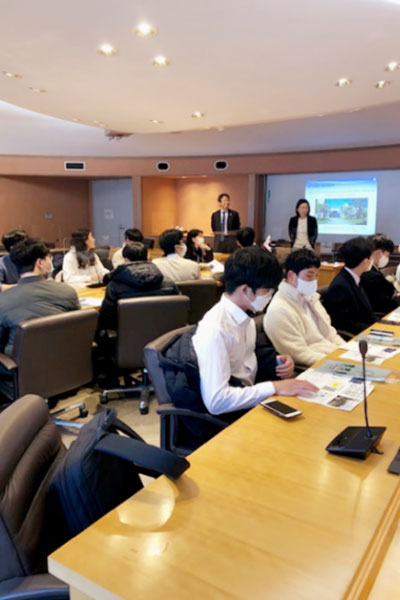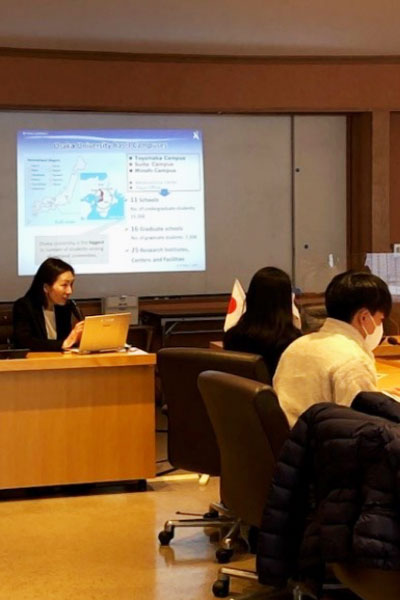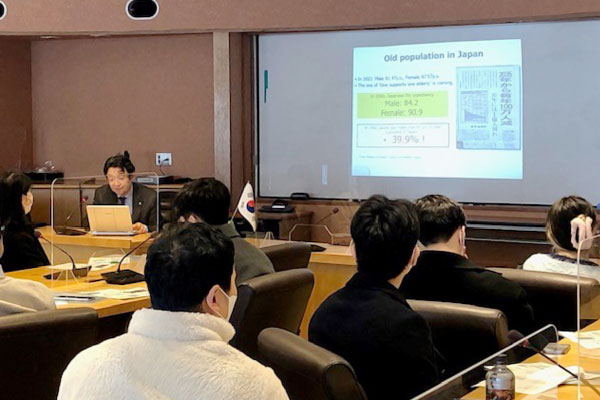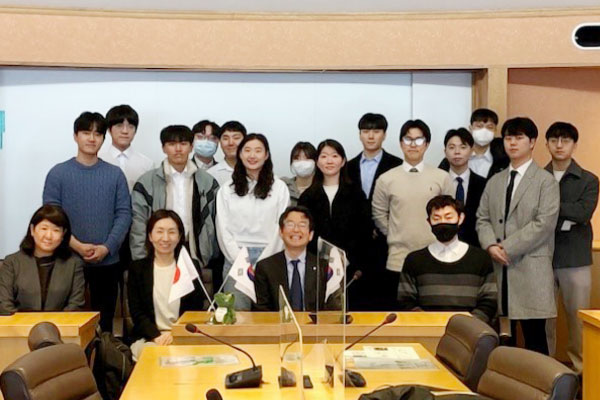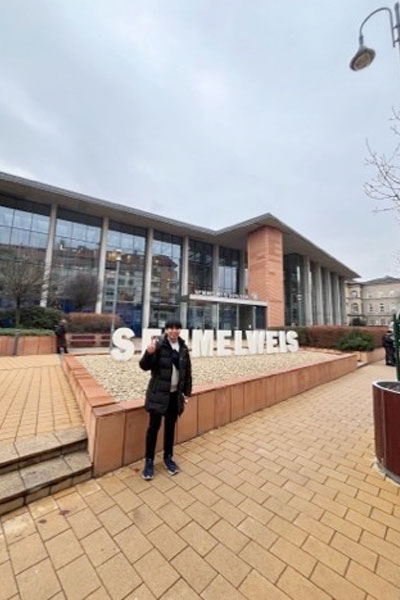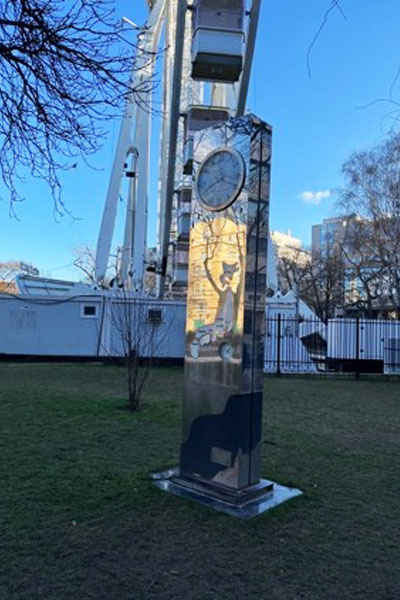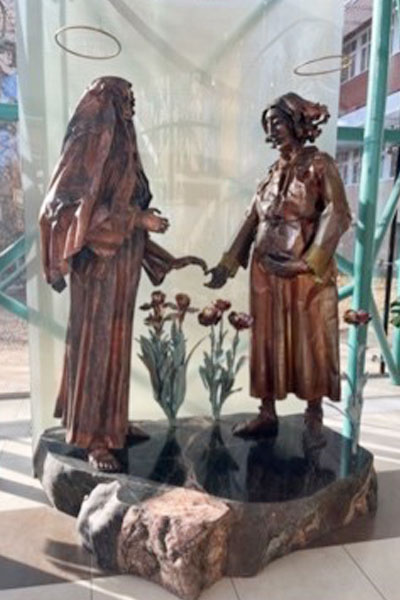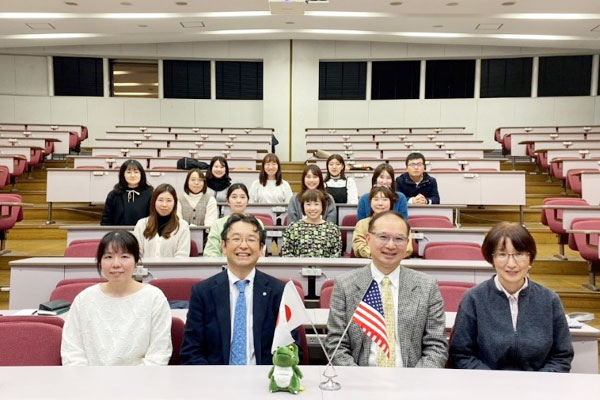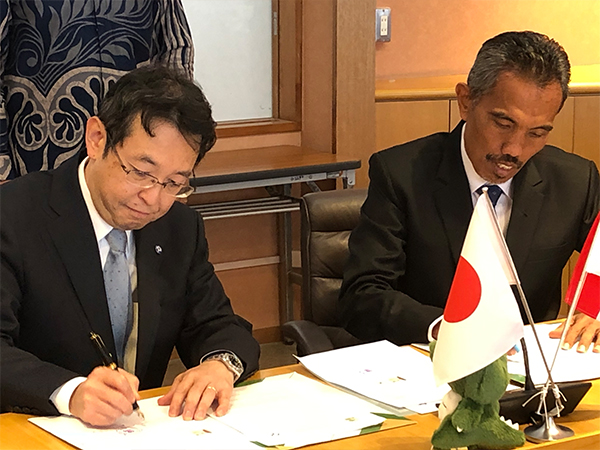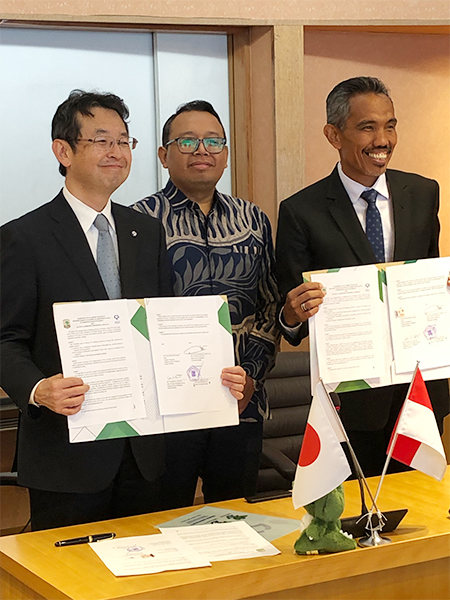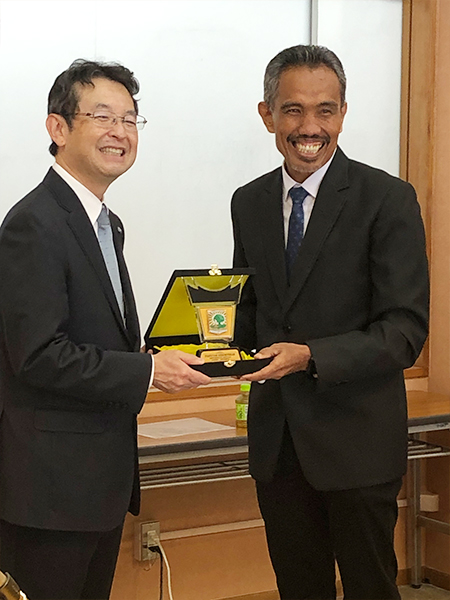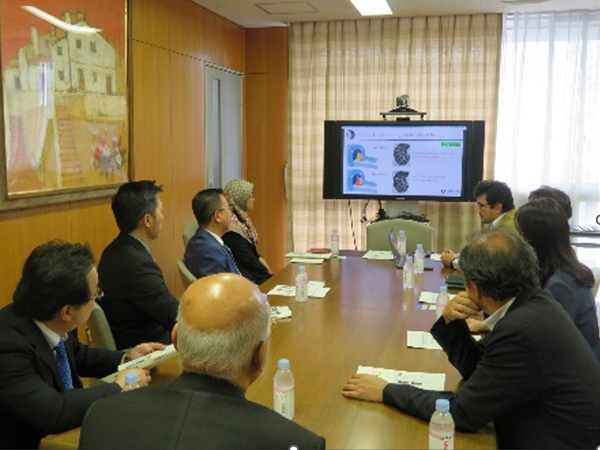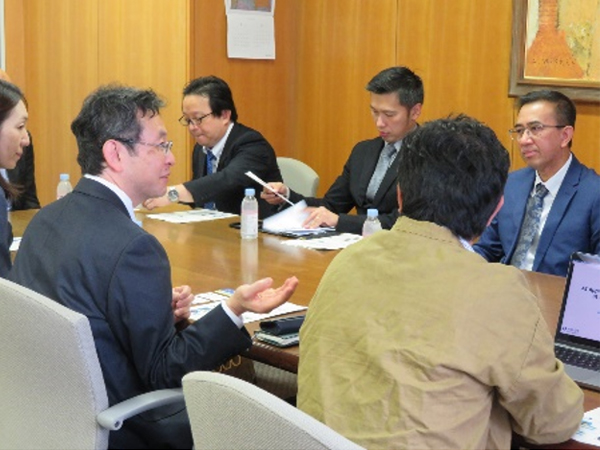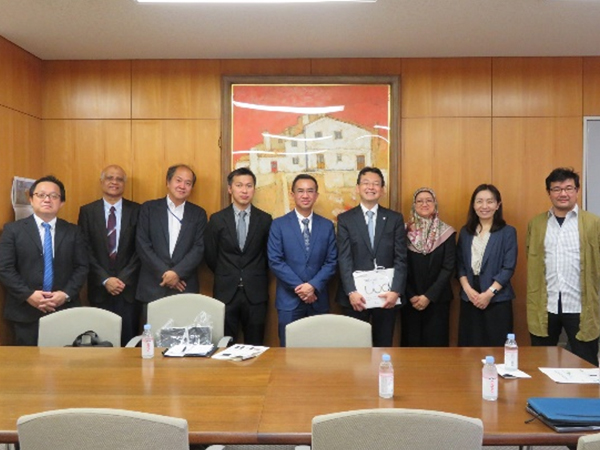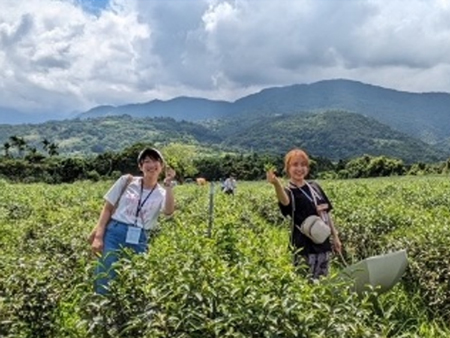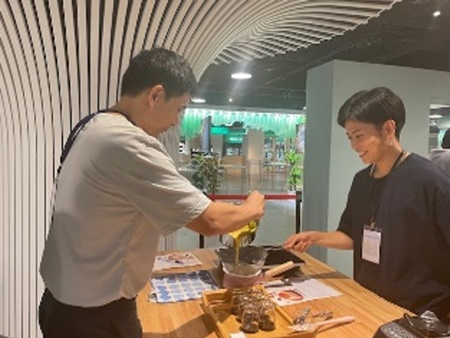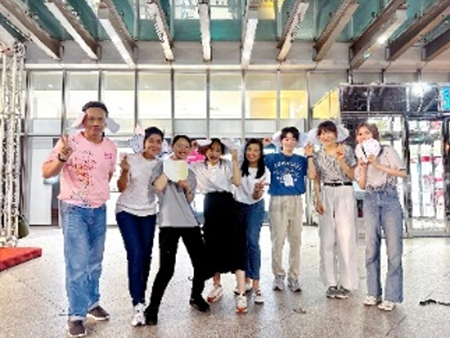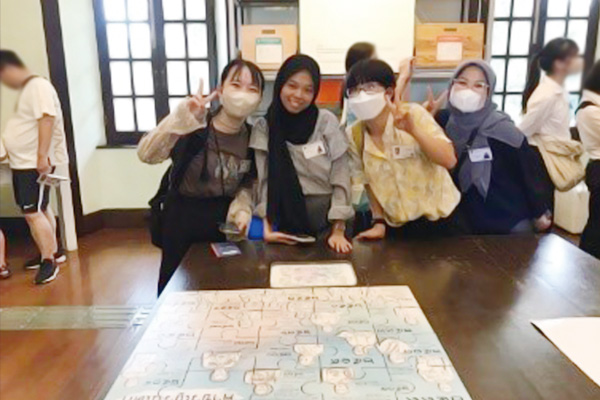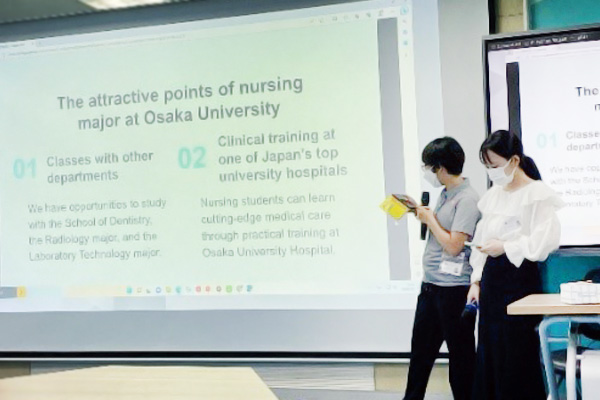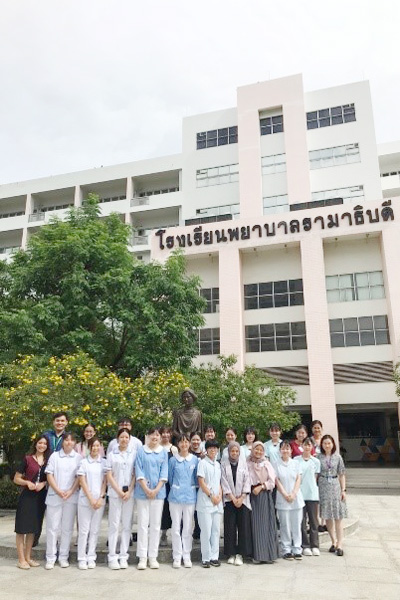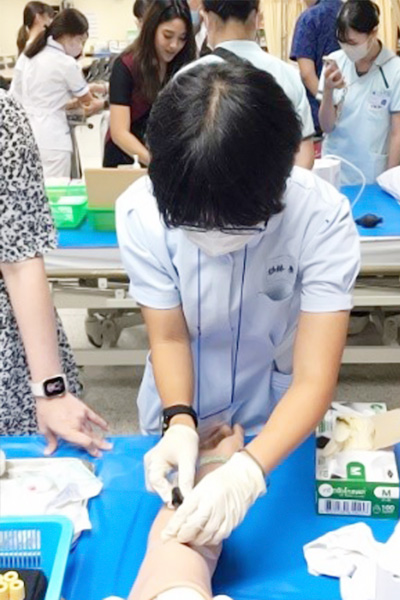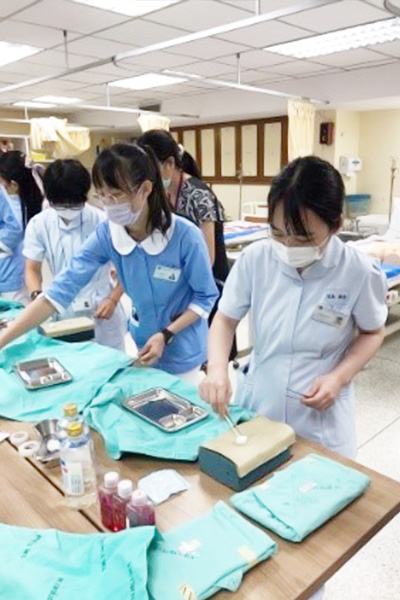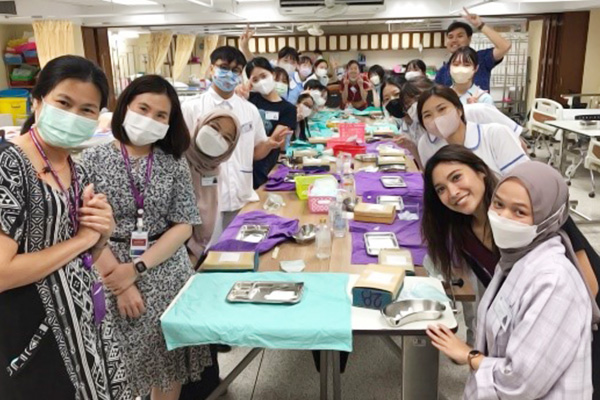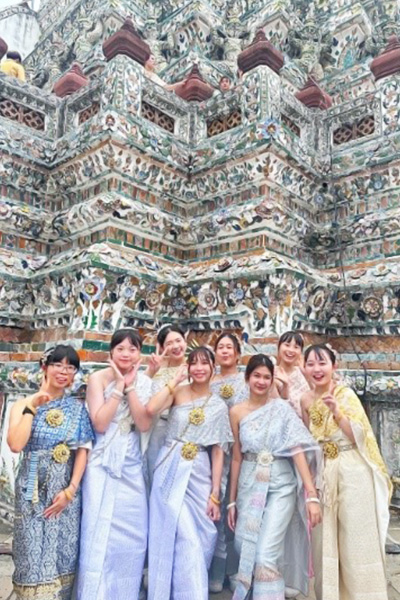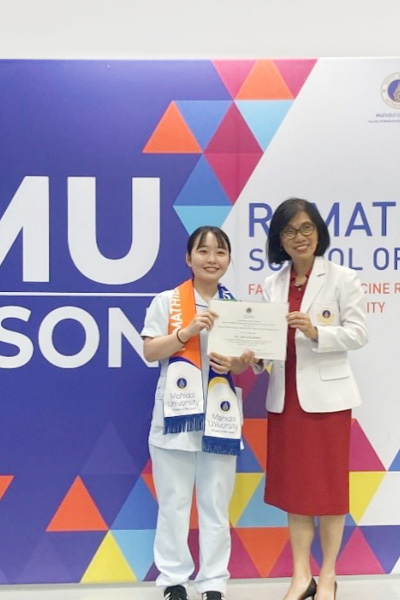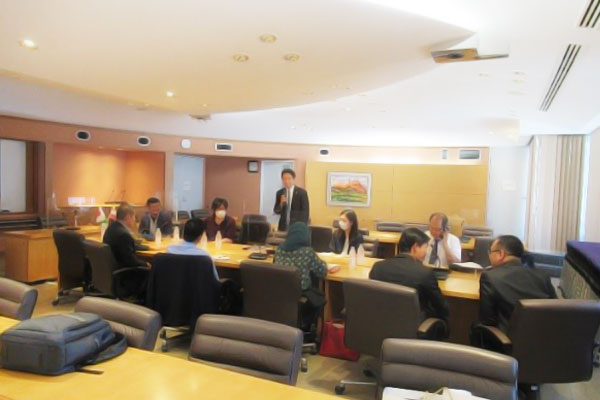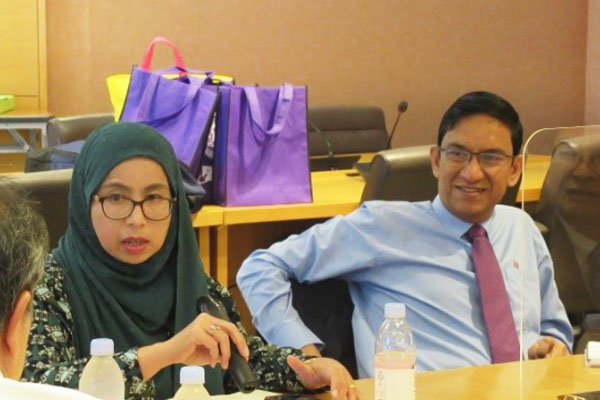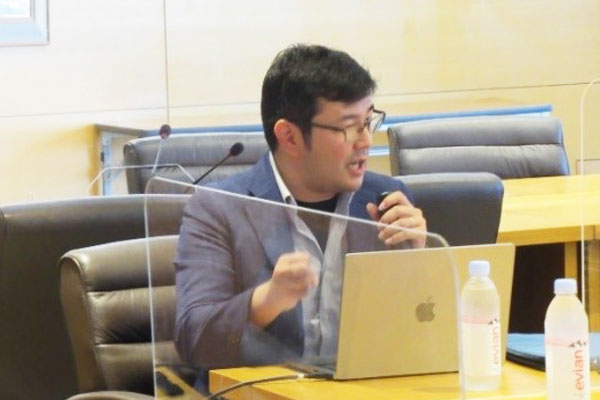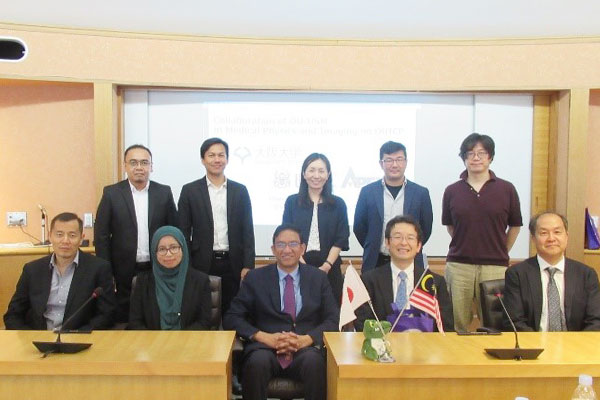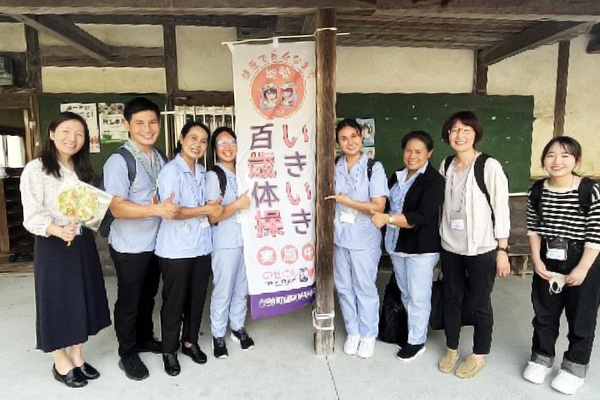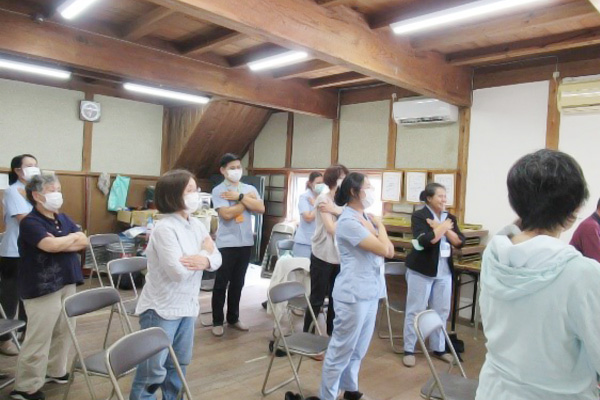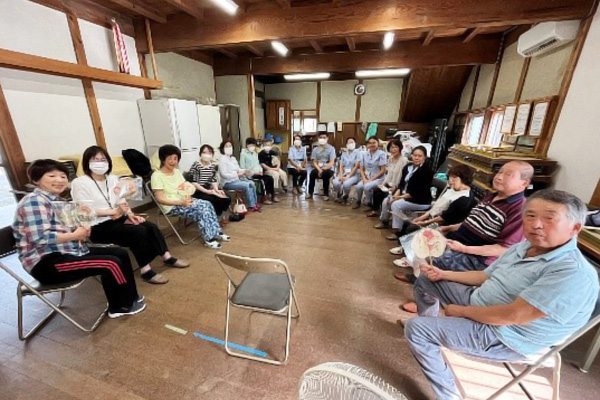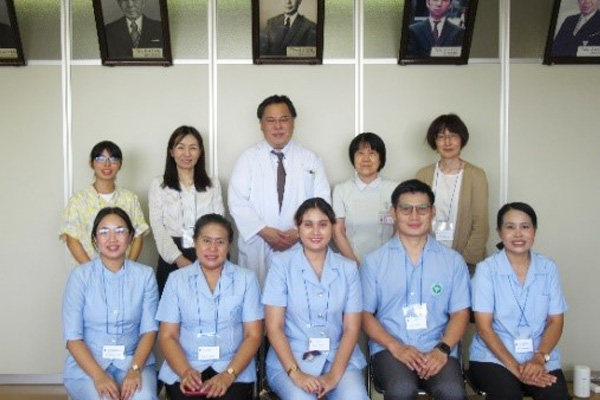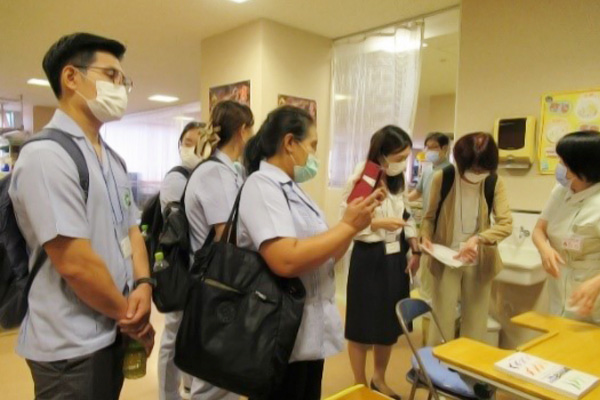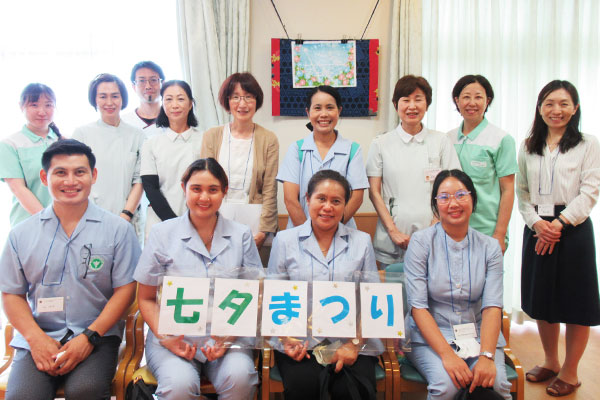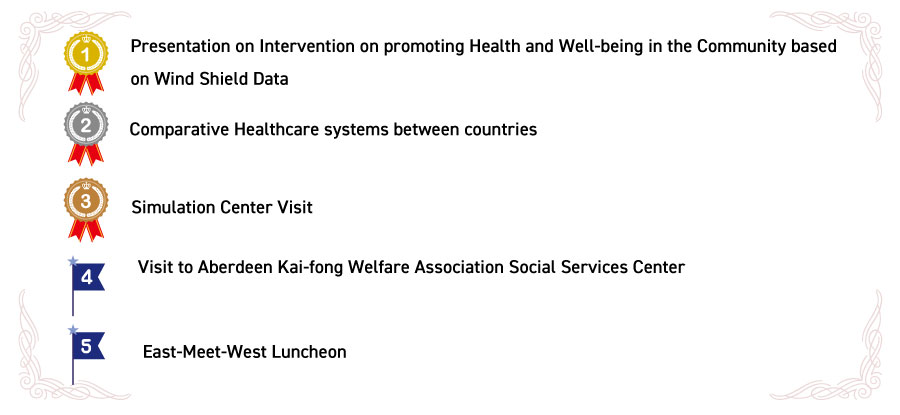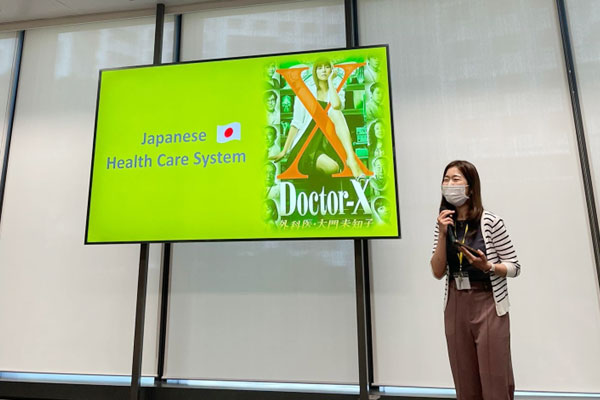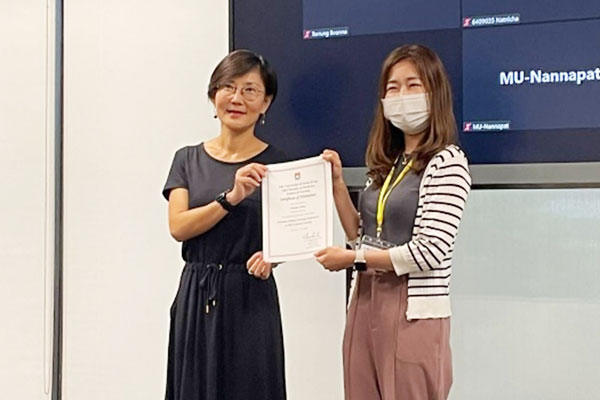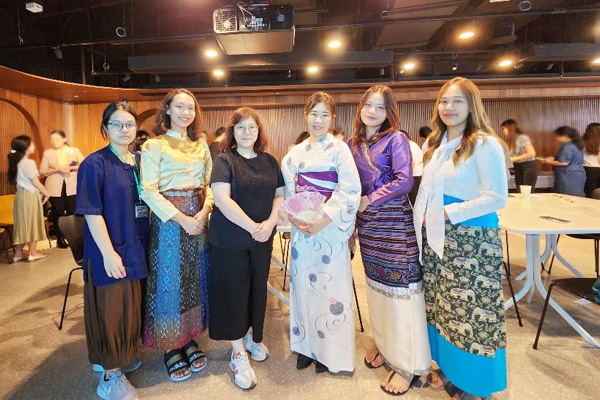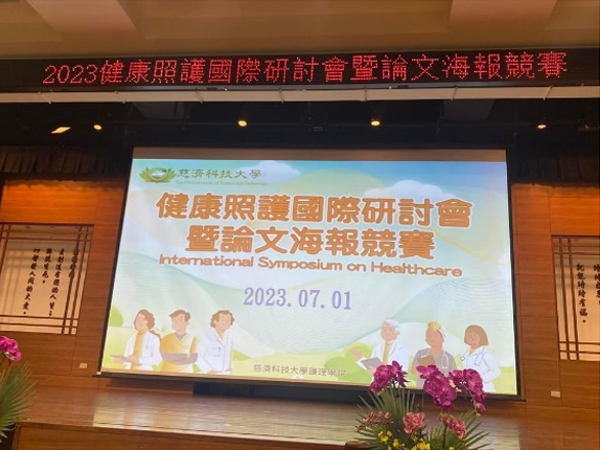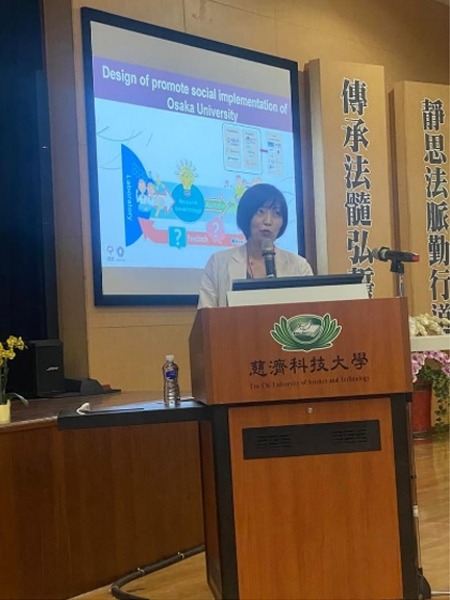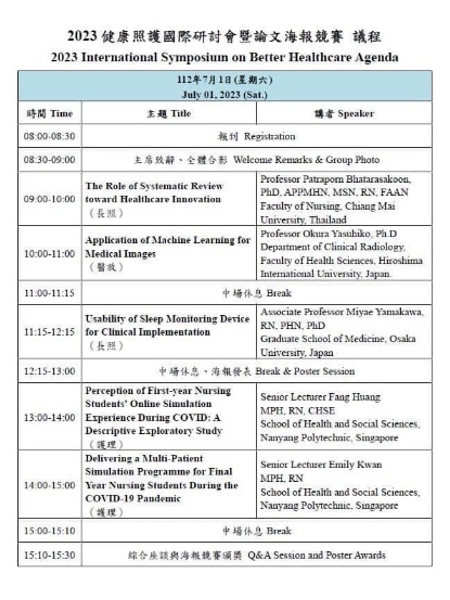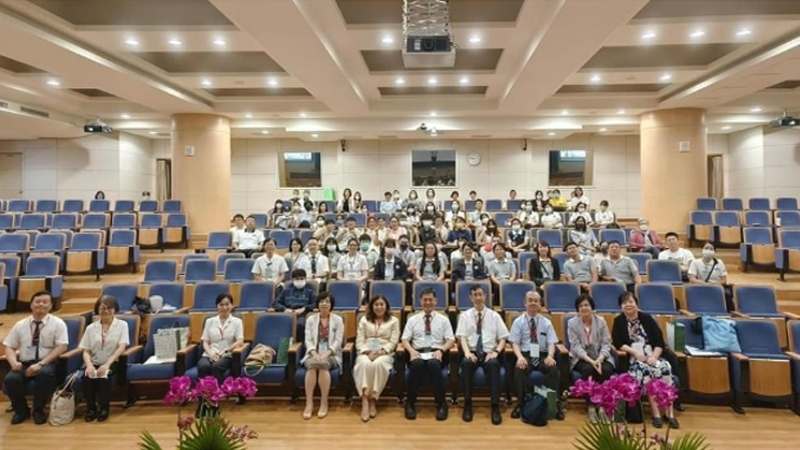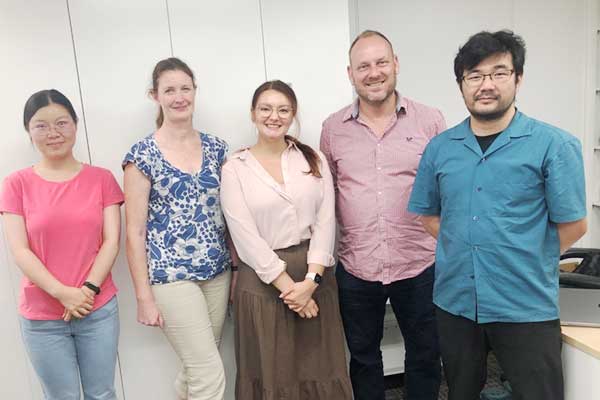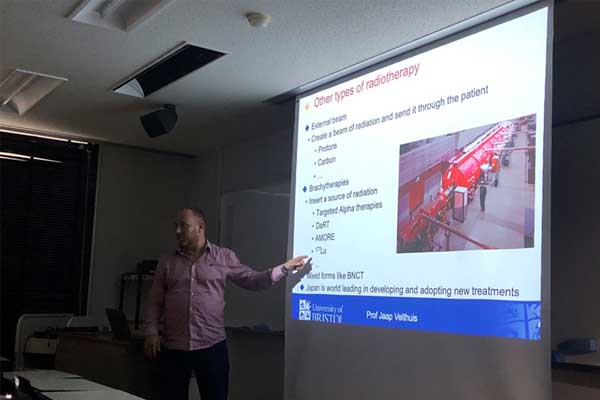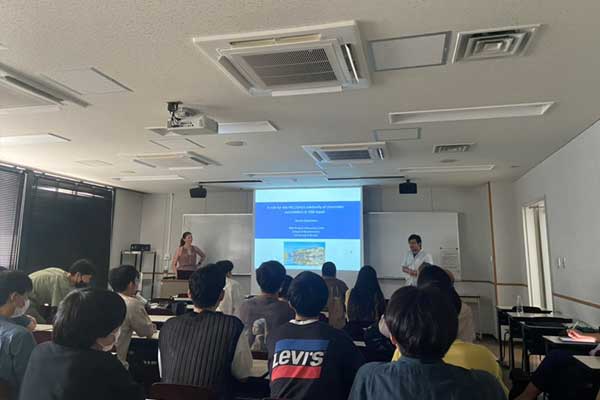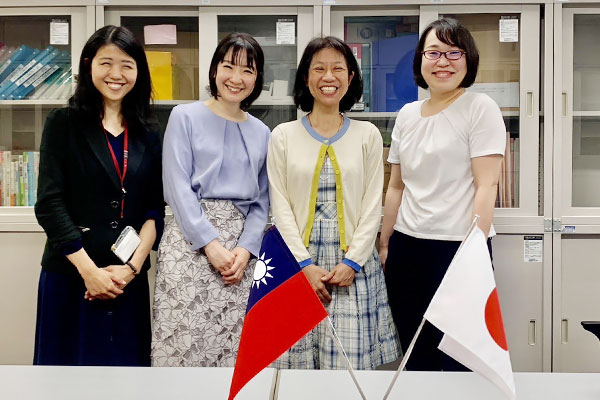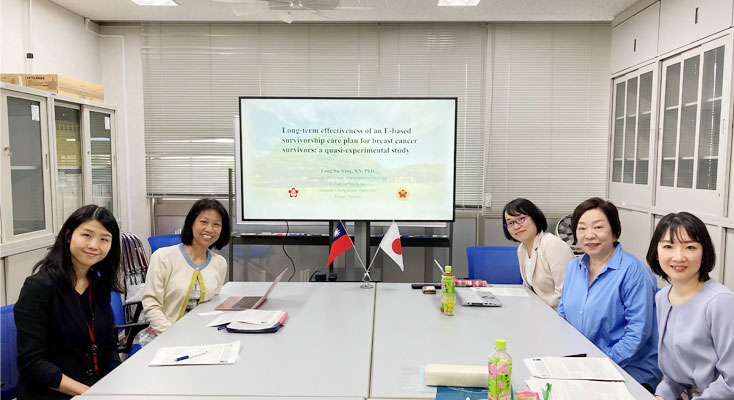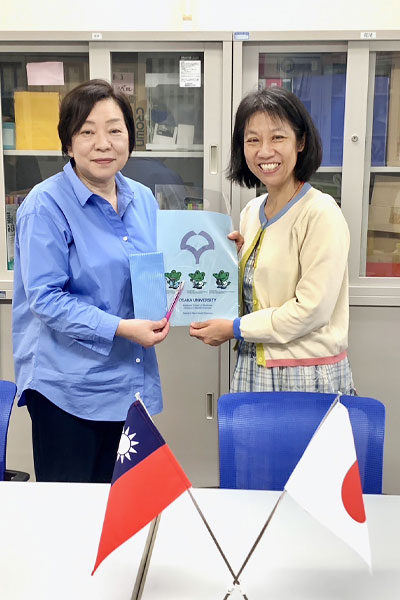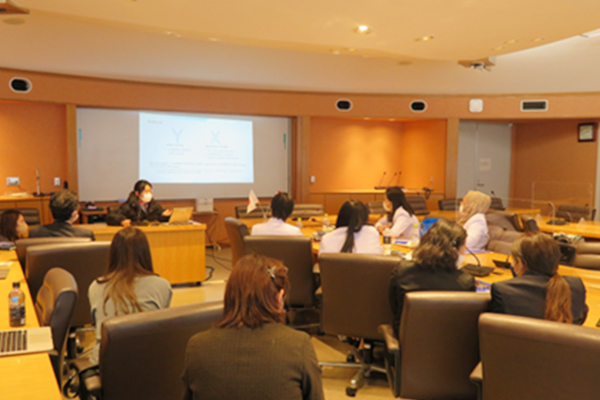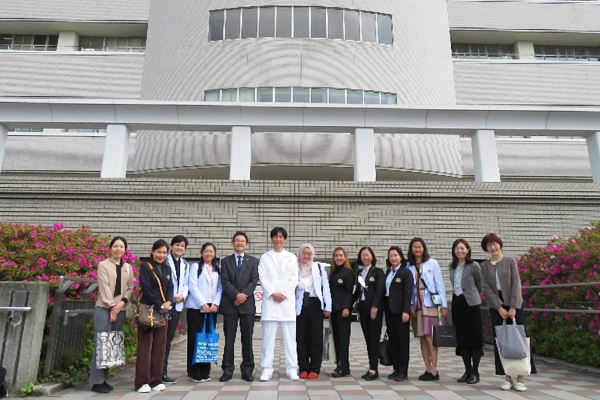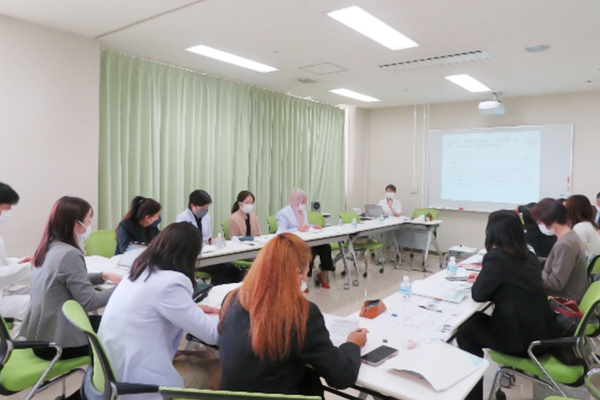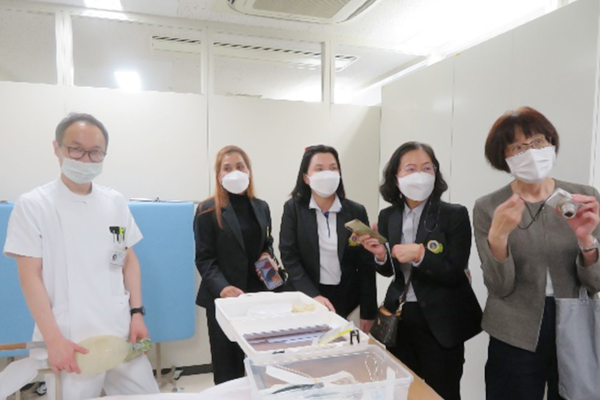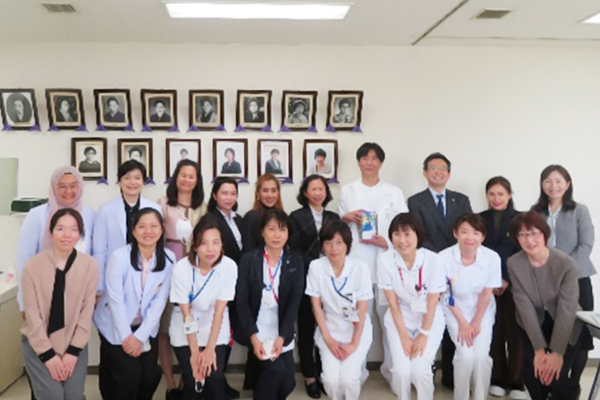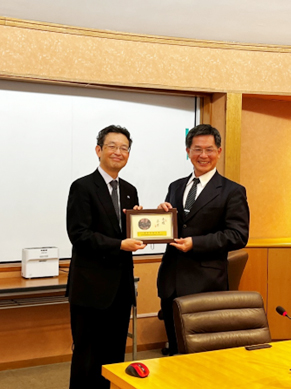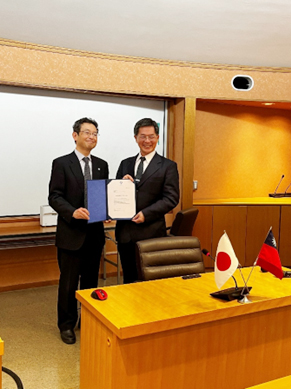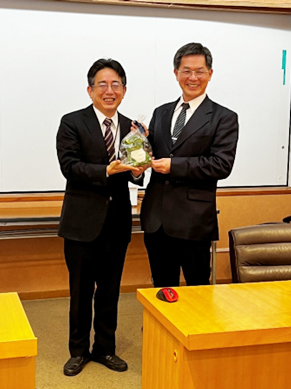News
- 2024 school year
- 2023 school year
- 2022 school year
- 2021 school year
- 2020 school year
- 2019 school year
- 2018 school year
- 2017-2007 school year
2023 school year
Geant4 Tour 2024
March 21 -April 2, 2024
① Geant4-DNA Collaboration Meeting 2024
The Geant4-DNA Developers Meeting was held on March 21-22, 2024 at Osaka University graduate school of medicine division of health sciences. Geant4 is the most used simulation code in medical physics, in addition Geant4-DNA is being developed specifically targeting radiation biology. One faculty member and one student from Osaka university are participating in the development group. Starting with this developers' meeting, Geant4 events were held for two weeks, including a Geant4-DNA workshop, an international conference, and a GATE10 workshop.
② The Geant4-DNA International Tutorial Osaka 2024
Geant4-DNA software training session. was held on March 25-26, 2024. This workshop was co-sponsored by Center for International Academic Programs Graduate School of Medicine, Division of Health Sciences Osaka University. Participants came from various countries including the U.S., Austria, Korea and so on. This course also trained medical physicists, with lecture certificates issued by the Japan Certification Organization for Medical Physicists and the Asia Oceania Organization for Medical Physicists.
③ The 5th Geant4 International User Conference at the Physics-Medicine-Biology Frontier
The 5th Geant4 International User Conference at the Physics-Medicine-Biology Frontier was held at Osaka University Nakanoshima Center. This conference was co-sponsored by the Osaka University division of health sciences. Researchers from various fields such as medical physics and space radio-protection as well as the developers of the simulation code Geant4 gathered for discussions. More than 70 researchers, including more than 50 from overseas, joined at the conference.
④ GATE 10 Training
Last event was GATE10 workshop (https://indico.in2p3.fr/event/31899/), a medical imaging application that implements an interface to run Geant4 using Python. Participants came not only from the division of health sciences, but also from the graduate school of Science, Laser Laboratory, Information Science, and other departments, as well as from companies and foreign countries.
Overseas study report: Incoming Student Exchange Programme at School of Nursing, University of Hong Kong
18 - 28 March, 2024
Two PhDs and one undergraduate nursing student participated in a short-term training programme organised by the School of Nursing at the University of Hong Kong. As Osaka University was the only participating university, the programme was very fruitful, with close interaction with local students and teachers, careful exercises in small groups and invitations to attend doctoral classes.
The city exploration activities brought the participants closer together, then they were greatly inspired by each other's English language skills and attitudes towards learning.
After returning to Osaka, they are even more motivated to research and brush up on their skills with a view to the next international exchange opportunity!
Voices from the participants
I was able to discuss various topics with UHKN PhD students, which increased my research perspectives.

I was surprised to find that the majority of nursing students in Hong Kong are male, and that practical training begins in the first year of undergraduate studies.

It was really good to know my English language skills. This programme has increased my motivation for research and strengthening my English language skills, too.

Visit from the National Union of Midwives Association and Taiwan Midwives Association
March 26-27, 2024
Eight people, including Dr. Kuo Su-Chens (National Union of Midwives Association, Taiwan, ROC, Honorary chairman) and Dr. Kao Chien Huei (Associate Professor at National Taipei University), belonging to ‘The National Union of Midwives Association, Taiwan’, and ‘Taiwan Midwives Association’ which are members of ‘The International Confederation of Midwives’, visited our Division of Health Sciences.
Midwifery education was abolished in Taiwan for 10 years (in 1991-2000). As a result, there are fewer midwives working in clinical practice than in Japan. During their visit, we held academic exchanges regarding the current state of maternal and child health and education in both countries, and they visited the Perinatal Medical Center, Osaka University Hospital and two Maternity Homes in Osaka Prefecture. Many questions were asked and a heated discussion took place. Department of Children and Women’s Health area will continue to strengthen the collaboration to accelerate academic exchange activities between two countries.
We would like to express our deepest sympathies for the 3 April earthquake off the coast of eastern Taiwan and wish for a speedy recovery.

(Seventh from right) Dr. Kamide, Dean at the Division of Health Science; (Sixth from right) Dr. Watanabe , (Fifth from right) Dr. Shiraishi
(Center) Dr. Kuo Su-Chens, National Union of Midwives Association, Taiwan, ROC, Honorary chairman; (Seventh from left) Dr. Kao Chien Huei(National Taipei University)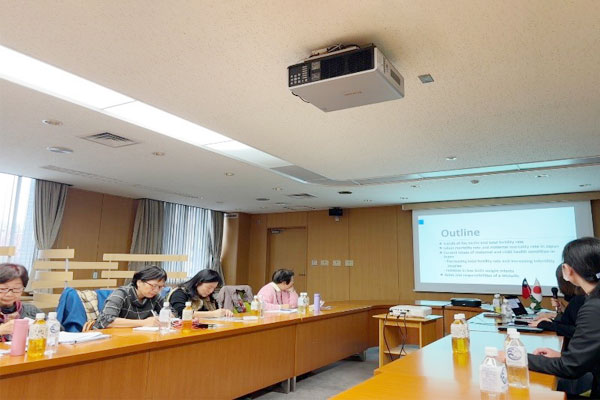
Presentation by Osaka University Team and Taiwan Midwifery team
Overseas study report: The Study Program for 2024 March Inbound Students at College of Nursing, Taipei Medical University
4 -15 March, 2024
Two third-year nursing students participated in a short-term training organized by the School of Nursing at our partner school, Taipei Medical University.
Communication with ‘local student buddies’ via social networking started before the trip, which helped them to feel at ease and prepared for the trip. They received one-to-one support after arrival and were able to brush up their English greatly.
Through the training, they learnt about Taiwanese healthcare from many different perspectives, and it was a valuable opportunity to think again about healthcare in Japan.

In our presentation on the first day we introduced the university and the culture of Osaka, using a pre-survey. We enjoyed a lot of lectures, among which the ones on long-term care and postpartum care in Taiwan were very interesting. We were able to learn about the similarities and differences between the two countries against the background of their respective cultures and demographics.
During the hospital tour, we were also able to visit a general ward as well as a ward with active IC, where we learnt about the differences between the systems in both countries.
Local student buddies provided generous support beyond their responsibilities and made even our weekend enjoyable. Feeling very close to Taiwan, it was a very fulfilling two weeks!
Special Lecture by Prof. Sungha Park, Internal Medicine of Yonsei University
March 18th, 2024
A special lecture entitled 'The status of resistant hypertension in Korea' was given by Prof. Sungha Park, Internal Medicine of Yonsei University, Korea. Professor Park gave this special lecture during his visit to the Division of Health Sciences as part of the CAMPUS ASIA exchange program.
Hypertension is the most common lifestyle-related disease, and we found his lecture based on scientific evidence very interesting as it clearly explained the frequency, factors and countermeasures for treatment-resistant hypertension, which cannot be adequately controlled even with the use of three or more drugs.
The Q&A session was also very lively, with several questions from both faculty and postgraduate students, making for a very productive special lecture.
Academic exchange report:A student visiting from Semmelweis University
March 10, 2024 -
Following the visit of an Osaka University student to Semmelweis University for research study this past January, a Semmelweis University student (PhD. candidate) is currently visiting our Center for Twin Research. Using our data, she is making comparisons about twins between Japan and Hungary.
After her one-month stay, several Semmelweis students are scheduled to come to Japan for one month each in turn. And meanwhile, Drs Adam & David Tarnoki, who are also twins, founders of the Hungarian Twin Registry, and the guest associate professors of our Center, will also join us.
We, as partner schools, will further enhance the opportunities of academic collaboration.
Participated in the 13th Hong Kong Nursing Forum
March 5, 2024
In conjunction with EAFONS2024 (27th East Asian Forum of Nursing Scholars), two faculties and 7 postgraduates participated in the 13th Hong Kong Nursing Forum as a member of co-organisers, which was held the day before EAFONS. It was an international joint forum hosted by the University of Hong Kong, one of our partner universities, with other 45 universities in 17 countries participating as co-organisers, entitled "Nurses’ Impact on Planetary Health." Human health is in an interactive relationship with various environmental issues including climate change, ecosystems, and nature. Planetary health aim to improve health, welfare, and create a fair society through focuses on the close relationship between civilized human health and the state of the global environment. Although the main part of the forum was a symposium, several graduate students presented their research and exchanged opinions during the e-poster session.
Dr. Mak gave a Special Lecture entitled “Young researchers, studying and working abroad! ”
February 15, 2024
Dr. Kwok Kei Mak (Associate Professor, Nagoya University) delivered a special lecture on "Advice for young researchers on studying and working abroad". He has lived in the U.K., Hong Kong, the U.S., Taiwan, and South Korea, and has been engaged in research and education at universities as a statistician. Based on his own experience of living and studying abroad, he gave guidance to young researchers, especially those who are likely to be active abroad, on the key points to keep in mind to succeed in studying abroad with the keyword "chase your dream".
Click for the flyerIHDi Twin Research Seminar Serise Held
January 26, 2024
Continuing from the last year, Prof. Karri Silventoinen, a Guest Professor from the University of Helsinki, delivered a lecture at the IHDi Twin Research Seminar. This time Prof. Silventoinen disscussed about the human body development and its genetic factors, researched at one of his projects, the CODATwins project (Collaborative Project of Development of Anthropometrical Measures in Twins). Title of his presentation was “Pleiotropy in body morphology and functioning in the light of twin Research”.
Our Center for Twin Research has been in collaboration with Prof. Silventoinen for approximately a decade, having established a joint laboratory. During his visit, Prof. Silventoinen continued to guide our students in analyzing and conducting research on twin studies at this international research and educational exchange platform.
Students from Yonsei University, Korea, visited as part of the CAMPUS Asia Program
January 23rd, 2024
Fifteen undergraduate students from Yonsei University (Korea), who are participating in a short-term training program at Osaka University as part of the CAMPUS Asia Program, visited the Division of Health Sciences. After a greeting from our Dean, Prof. Kamide, the students attended two lectures on the field of Community Health.
After each lecture, many students asked questions, through which they had an opportunity to learn deeply about the Japanese health insurance system, the current situation of aging population and its problems in both countries.
| 10:00 | Welcome Remarks |
|---|---|
| 10:10 | Lecture - Prof. Kabayama ‘Introduction to Osaka University & Division of Health Sciences’ ‘Prevention of Long Term Care in Japan’ |
| 10:50 | Lecture - Prof. Kamide ‘Current Situation of Aging Society in Japan; Importance of Healthy Aging and Successful Assisted Living’ |
| 11:50 | Group photo Farewell Remarks |
Study abroad report: A UOsaka student to Semmelweis University
January 15th – February 15th, 2024
Our Center for Twin Research and its partner university, Semmelweis University (Hungary), have been selected for the second time for the Erasmus+ program (EU study-abroad support program) and are conducting research exchanges for both students and teachers.
A student studying radiological technology and science (3rd year of the doctoral course) went on a one-month study abroad program to gain valuable experience in examining diagnostic methods and analysis methods for cases of bone metastases on CT and PET images, as well as presenting the results of the analysis.
He was also able to visit several facilities including the National Institute of Oncology.
UC Berkeley Professor Gave a Special Lecture
January 19th, 2024
A special lecture, "Community Perceptions about Advance Directives and Behavioral Health in California," was given by Professor Winston Tseng of the School of Public Health, University of California, Berkeley, USA. He introduced the results of the latest research on the "advance directive," and gave a very interesting presentation on the differences in views due to racial differences and cultural differences. The Q&A session was very lively and productive, with many questions from graduate students.
Click here for the flyerSigning Ceremony Held between Faculty of Medicine of Andalas University and Graduate School of Medicine/Faculty of Medicine at Osaka University
October 24, 2023
The Division of Health Sciences held a signing ceremony between Faculty of Medicine at Andalas University and Graduate School of Medicine/Faculty of Medicine at Osaka University on October 24, with an attendance of more than 15 participants including the Consuls from the Consulate General of The Republic of Indonesia in Osaka and Dean of Faculty of Medicine of Andalas University. Following the ceremony was academic exchange programs (October 24 to 26), where we offered special lectures and activities such as a visit to a Midwifery home for the participants. We strongly believe that our partnership has been further deepened through the face-to-face event. The Division of Health Sciences will continue to strengthen the collaboration to accelerate academic/student exchange activities between the two universities.
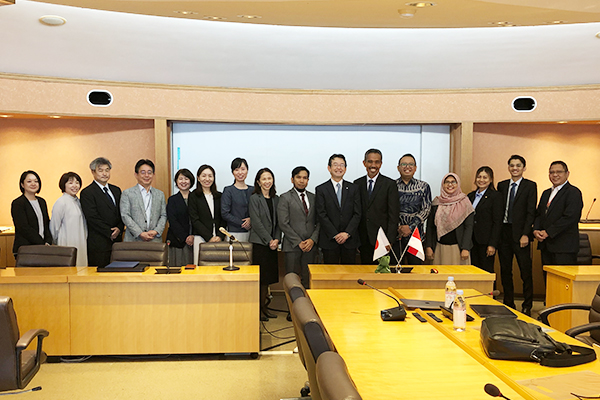
(Sixth from left) Dr. Kabayama, Director at the Center of Academic Exchange Programs; (Eighth from left) Dr. Hiroko Watanabe; (Tenth from left) Dr. Kei Kamide, Dean at the Division of Health Sciences; (Sixth from right) Dr. Afriwardi, Dean of Faculty of Medicine of Andalas University
The MOU was signed between Faculty of Medicine of Andalas University and Graduate School of Medicine/Faculty of Medicine in the presence of the Consul Mr. Anak Agung Ngurah Andy Laksmana, Consul of the Consulate General of The Republic of Indonesia in Osaka.
Visit from Universiti Brunei Darussalam
5th October, 2023
Dr. Hazri bin Haji Kifle, the Vice Chancellor, and Dr. Abby Tan, the Assistant Vice Chancellor of Universiti Brunei Darussalam (UBD), which is involved in Osaka University ASEAN Campus, recently paid a visit to our Division of Health Sciences. During our meeting, we had a fruitful discussion on AI research related to medical images conducted within our division that attract interest of UBD since UBD is actively promoting AI research. Additionally, we engaged in an enthusiastic conversation about the potential for student exchange programs between ASEAN Campus and OUICP, with the goal of establishing future joint research initiatives and student exchanges at the divisional level.
Overseas training report: 'Transcultural Humanities Summer Camp 2023'
at Tzu Chi University of Science and Technology, Taiwan
7 - 16 August 2023
This year, four undergraduates (one 2nd year and three 4th years) participated in the popular annual summer camp organized by Tzu Chi University of Science and Technology.
All programs were conducted in groups comprising students from each university. Our students tried to communicate with the Asian students in English, and engaged in a diverse program including classes on the SDGs and disaster-relief, a visit to the Tzu Chi Hospital, cooking vegetarian food and learning about native peoples.
Visit to Plantarium
Through the vegetarian food training, I learned about the impact it has on the earth. All breakfasts and lunches served at the university and dormitory were vegetarian menus, and although it took some time to get used to the local ingredients and flavors, it was an opportunity to review my usual diet, knowing that a vegetable-based diet can help counter environmental problems caused by climate change.Talent Show
The process of deciding on a group theme for the show, and practicing in a short period of time for presentation improved my ability to communicate in English, and also strengthened the bond between the groupmates.Visit to Tzu Chi Hospital
The hospital visit led to a meaningful exchange of views on healthcare and nursing in each other's countries with the mates from Thai.Overseas study report: Summer program at Mahidol University, Thailand 2023
"Study Visit for Nursing Students".
31 July - 11 August 2023
For the first time, our students from the School of Allied Health Sciences (two fourth-year students) participated in a two-week study program organized by Mahidol University Ramathibodi School of Nursing, Thailand, with which an inter-divisional agreement was concluded last year. It was a very valuable experience, absorbing a lot of knowledge every day through classes and practical training in English and communication among the trainees. We would like to thank the Mahidol faculties as well as the student buddies for all their help, from picking them up at the airport to following them around on a daily basis and guiding them around the sights on their days off.
Click here for the training schedule.Mahidol University's campus and hospital were surprisingly large and very well equipped.
In the 'Sim Lab Activities' class, we experienced practical training in blood sampling, intravenous injections and injury treatment using a model. As there were no practicals in the Osaka University classes, it was fresh and we enjoyed exchanging opinions with the other trainees.
During the hospital visit, we observed the emergency ward, pediatric surgery and pediatric outpatient clinic. We were able to learn about the characteristics of each ward and what they focus on, as well as the current state of emergency care beds and staff shortages.

At the ‘Chakri Naruebodindra Medical Institute', I was able to see directly how nursing care is implemented in a clinical setting. The doctors answered our questions carefully and we were able to learn about the differences between Thai and Japanese healthcare, and about nursing specific to Thailand.
While observing a convenience store in the hospital, my Thai buddy explained to me that there are fewer types of nappies than in Japan and that their costs are not covered by insurance, which also made me interested in Thai nursing services.
At the 'Cultural Night Party' held the day before the last day, each university introduced its own culture. We gave participants the experience of making origami cranes and had a lot of fun.!

Delegation including the Vice-Chancellor visits from Universiti Sains Malaysia (USM)
2 Aug 2023
Division of Health Sciences is strengthening its ties with ASEAN countries and is offering the Osaka University International Certificate Programme (OUICP, Frontiers in Medical Physics and Medical Imaging) as part of the Osaka University ASEAN Campus Project to solve various problems in the ageing society and its related issues, and also to develop high-skilled health care workers.
As in one of the implementations of the OUICP, in order to strengthen inter-university cooperation, Prof. Dato' Ir. Dr. Abdul Rahman Mohamed, the Vice-Chancellor of USM, and other 4 faculty members of Prof. Dr. Lee Keat Teong, Prof. Dr. Zainovia Lockman, Mr Ahmad Farez Ahmad Fizri and Mr Muhammad Syukri Sa'adon, visited our division. The visit was attended by our divisional dean, Prof. Kei Kamide, chair of international exchange center, Prof. Mai Kabayama, Prof. Teiji Nishio and Assoc. Prof. Dousatsu Sakata. During the exchange meeting, a fruitful discussion took place about not only the existing OUICP initiatives, but also the various health issues and challenges in Malaysia, and how our Division and USM can tackle and solve these issues.
Onsite Summer Program (organized by Gerontological Nursing) is back after 4 years!
10 - 21 July 2023
After one cancellation and two online events due to the Corona pandemic, this was the first time in four years that the training had been held on site.
Thirty-two students from seven universities, mainly from partner schools in Asia, participated. The program covered a wide range of topics; beginning with an explanation of the current situation of Japan's super-aging society and the long-term care insurance system, followed by an introduction to state-of-the-art technology in geriatric nursing, visits to companies (ATC, Paramount Bed, RICHO), hospitals, care homes and community support centers, and group work on end-of-life care through a game.
One or two OU graduates participated as assistants in groups of four to five trainees, accompanying them to the facilities and acting as interpreters. These duties resulted in a good experience for them to improve their language skills and deepen their knowledge of their own research topics. It was also a very meaningful two weeks for all of the students, learning about each other's culture and its differences through 'takoyaki parties' and daily conversations.
Click here for program timetable and photosVoices from Trainees



We experienced 'Centenarian Exercise' with the elderly. Taiwan also has 'Centenarian Exercise' similar to folk dance, but the Japanese version is more strenuous, and we were surprised to see that the Japanese elders were more energetic than us young people!
Japan takes very good care of the 'food' of the elderly. I was impressed by the efforts made to recreate and retain the color, aroma and taste of food, as well as to adjust the consistency in stages for those with dental problems.
The technology of the medical bed made me sigh! I had a real experience of various functions (such as weight measurement, vital signs and sleep monitoring, bedsore prevention functions, etc.) that I thought existed only in the world of TV drama. The assisted bathing device was most impressive and would significantly reduce the burden of caregiving.
‘Death’, which is often considered taboo in Asia to talk about, was discussed through a card game. It was interesting to see that the answers to the question "What do you cherish at the end of life?" were clearly divided among the group. We would like to share end-of-life wishes among family members and make use of them in care.
The study groups were organized across universities, which made it easy to compare and deepen our knowledge of the different systems and ways of thinking in other countries. In addition, the graduate assistants from Osaka University who were in charge of each group were very kind and did their best to be there for us, both in and out of lectures in English, which many of them were not used to.
Voices from OU assistants
I was nervous because I was worried about my English, but I tried to convey my message in an easy way to be understood using gestures, and to concentrate what they say as much as possible!" In the meantime, I started to enjoy communicating. I sometimes felt depressed because I couldn't interpret well, but it was a great motivation for me to continue leaning to speak English.
I feel glad to see the trainees enjoy real Japanese culture that they had only seen on social media, such as Nagashi Somen, Kaiten-sushi and takoyaki making. I am sure that this is the best part of face-to-face interaction.
Through visits to various facilities and companies and lectures on diverse topics, I was able to learn new ideas and techniques, and to incorporate them into my own research. I got a good stimulus by some overseas graduates studying in the same field, and could develop my ability to think about problems from different perspectives.
The activities and interactions with overseas students in this Program provided an opportunity for self-reflection. By putting in more effort in a different environment than usual, I was able to feel my own growth and weaknesses. After the Program, I feel more motivated to work even harder towards my own goals.
Study visit of master students from Mahidol University, Thailand
6 - 7 July 2023
From one of our partner schools, Ramathibodi School of Nursing, Faculty of Medicine Ramathibodi Hospital, Mahidol University, Thailand, Assistant Professor Wanna Sanongdej and four master's students visited us on 6-7 July 2023, to study community nursing and care in Japan, the country with the highest longevity in the world, as part of their master's course of the 'Community Nurse Practitioner Practicum RACN510'.
On the first day, after a lecture on "Introduction of Japanese long-term care system" by Professor Kabayama, Director of the International Exchange Centre at the Division of Health Sciences, they departed for Nose Town, Toyono-gun, Osaka Prefecture. Here, after visiting the Nose Town Health and Welfare Centre, they observed and participated in the " Lively 100 year-old gymnastics" at the Nomanaka Community Centre. After the exercises, we had an exchange meeting, including interviews with older adults. We would like to thank Ms. Hatanaka, Public Health Nurse of the Nose Town Health and Welfare Centre, for coordinating and accompanying us.
For dinner, they were treated to Osaka's specialty okonomiyaki by our Dean, Prof. Kei Kamide.
On the second day, we visited the Terada Manjukai social welfare organisation in Kishiwada City, which is run by Dr. Naomichi Matsukawa, a graduate of OU Geriatrics and the President of that social welfare organisation. They were shown around Terada Manju Hospital, Manju Kishiwada, Manju Kaizuka and Manju-en, an intensive care home for older adults. The visitors were very warmly received by the staff and the users, and they learnt about elderly care and nursing care in Japan.
They also filled in their wishes on strips of paper for the Tanabata Festival at an event at the group home.
They also enjoyed a sumptuous special menu meal prepared by the hospital's head chef.
On the way, they also had the opportunity to visit Kishiwada Castle and Kishiwada Danjiri Kaikan, which gave them a chance to experience and enjoy Japanese culture, including the traditional festivals in the area.
We would like to express our sincere thanks to all the staff who took time out of their busy schedules throughout the day to provide them with courteous assistance.
We hope that the two-day experience contributed in some way to the learning of the Thai people. We also hope that visits by both sides will become more active in the future.
Schedule(PDF)6 July
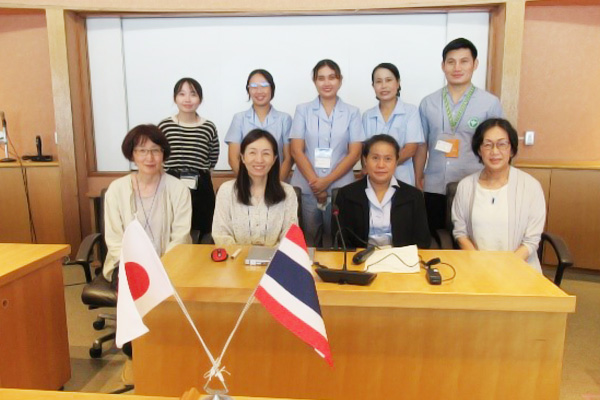
(Front row, from left) Assis. Prof. Kido, Prof. Kabayama, Assis. Prof. Wanna Sanongdej
(Back row, from left) OU student and 4 Mahidol graduates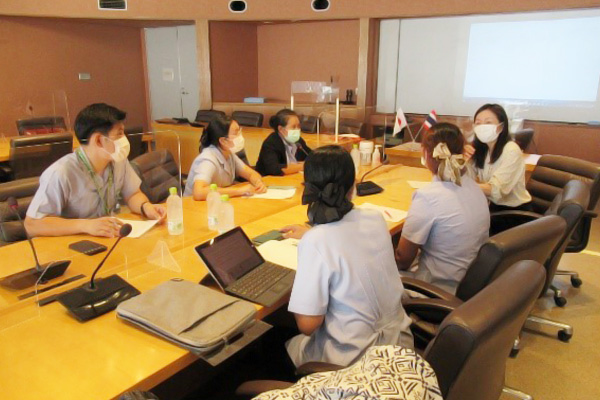
6th July
Lecture “Introduction of Japanese long-term care system” by Professor Kabayama (OU)
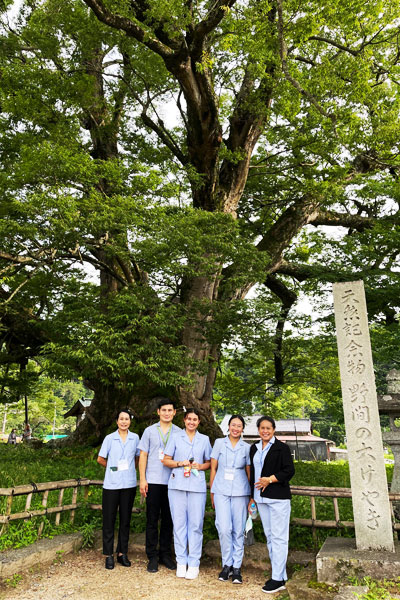
In front of a large zelkova tree (a designated national natural monument) in Noma, Nose Town.
A blue-winged blackbird was spotted!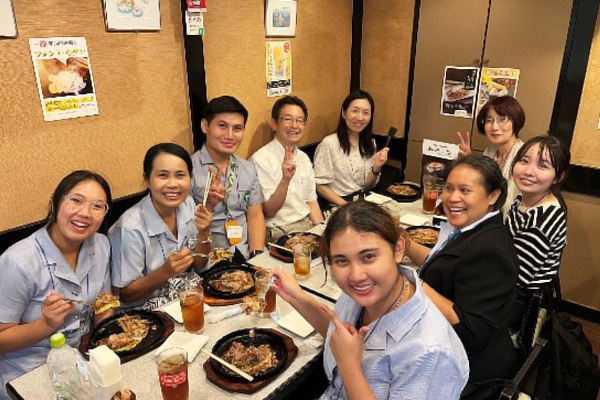
Our Dean, Prof. Kamide treated us to the Osaka specialty okonomiyaki.
7 July
Study Abroad: HKUSON Summer Exchange Programme 2023
"Working towards SDG 3: Promoting Health & Well-being in the Community"
3 - 14 July 2023
One student (doctoral student) was sent to a short exchange programme organised by the School of Nursing, University of Hong Kong, after four years following the pandemic. In an environment with only one Japanese participant, she spent a very meaningful two weeks, where she was able to develop his English language skills and presentation techniques, and also had the opportunity to discuss her own research topic with professors and graduate students from the University of Hong Kong.
Below are the top five programmes she chose and some photos.
Program(PDF)Associate Prof. Miyae Yamakawa speaks at the International Symposium at Tzu Chi University of Science and Technology, Taiwan
1st July 2023
The 'International Symposium on Healthcare' was held at our partner university, Tzu Chi University of Science and Technology (Taiwan). This year marked the 10th anniversary of the inter-divisional agreement between both universities, and Associate Professor Miyae Yamakawa was invited to give a lecture on sleep monitoring entitled 'Usability of Sleep Monitoring Device for Social Implementation'.
Visiting researchers from the University of Bristorl, UK
19 - 24 June 2023
Based on the joint research being carried out by the University of Bristol and Osaka University (OU), an adopted UK-Japan Joint Research Fund: International Exchanges 2022 Cost Share (JSPS and NSTC) will be used to carry out research on "Innovation of targeted alpha-particle therapy - Interdisciplinary study between radiation physics, chemistry, and biology on DNA damage". This has brought Prof. Jaap Velthuis, Dr. Anna Chambers, Dr. Chiara De Sio and one student from the University of Bristol, to Japan.
During their stay, they held discussions with Prof. Hiroki Kato and Dr. Naofumi Watanabe of the OU Graduate School of Medicine in order to promote research on simulation of alpha internal radiation therapy. Other discussions on simulations of BNCT (boron neutron capture therapy) were held at the Kyoto University’s reactor, where BNCT had been performed in the past. In addition, seminars were given by Professor Jaap Velthuis and Dr. Anna Chambers, respectively, as part of the course "Advanced Radiotherapy" in the Master of Medical course.
International exchange on research on cancer survivorship care (Acute and Palliative Care Laboratory)
June 6, 2023
Dr Su-Ying Fang, Professor at the Department of Nursing, National Cheng Kung University, visited from Taiwan and exchanged opinions with our members of the Acute and Palliative Care Laboratory. Dr Fang has developed a web-based cancer survivorship care programme for breast cancer survivors after treatment, and we were able to hear a detailed account of her research, including the development of the programme and actual intervention research. Our laboratory also introduced related research, and through the exchange of opinions, we were able to gain valuable suggestions for future research.
Partnership Ceremony & Meeting held with Mahidol University
April 19-20, 2023
Eight faculty members from Mahidol University Ramathibodi School of Nursing (Thailand) visited us for the first time after signing an interdivisional agreement with the OU Division of Health Sciences in April 2022.
On the first day, 14 members of the OU faculties and administrative staff attended the ceremony commemorating their visit to deepen exchanges, and in the afternoon meeting, faculties of both schools introduced their own research activities and also had a discussion about the double degree programme.
On the second day, the participants visited and observed the Nursing Department of Osaka University Hospital, where they received a detailed introduction focusing on nursing management with the cooperation of the Nursing Department. A lively question and answer session and exchange of opinions took place, making it a productive time.
Afterward they also visited the Kishimoto Memorial Medical Museum.
April 19th : Ceremony & Academic Meetings
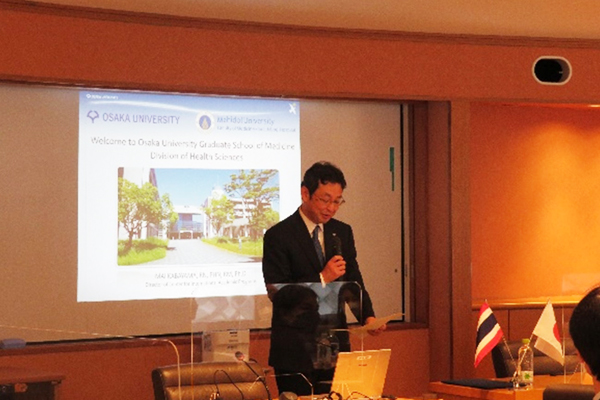
Opening Remarks by OU Dean Kamide
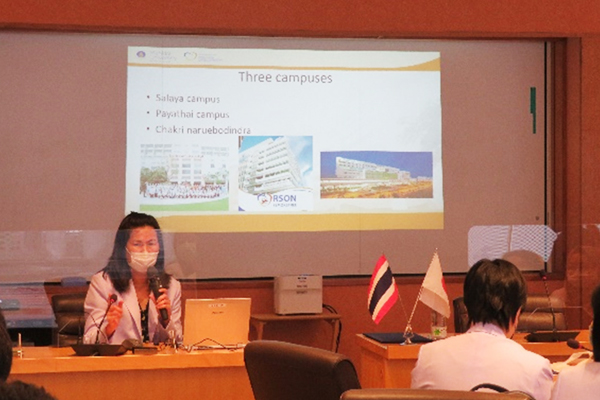
Introduction of Mahidol Univ. by Dr Jumpee
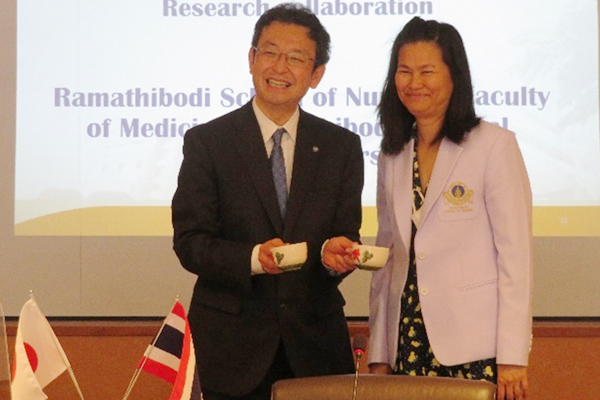
Giving & receiving commemorative gifts
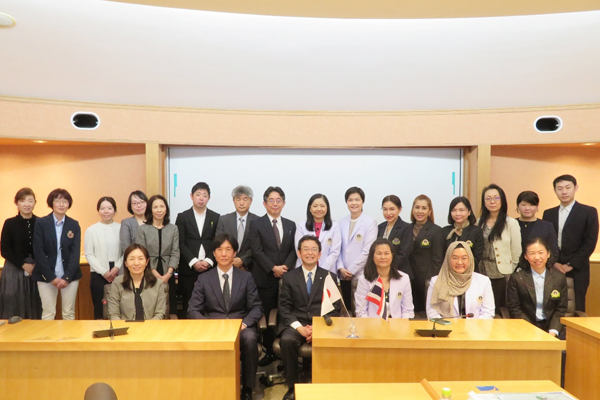
Ceremony attendees
(Front row, from left)
Prof Kabayama, Center for Int’l Exchange Center, OU
Mr Iwasaki, Director of Nursing Dept, Osaka Univ. HP
Prof Kamide, Dean of Division of Health Sciences, OU
Dr Jumpee Granger, Deputy Director for Int’l Relations, MU
Dr Nareeman Neelapaichit, Deputy of Director of Student Affairs, MU
April 20th : Visit to OU Hospital
Academic exchange meeting held in conjunction with the visit of Tzu Chi University of Science and Technology
April 7, 2023
On 7 April, a total of seven visitors, including the President and Dean/Directors of departments, from Tzu Chi University of Science and Technology (TCUST, Taiwan) visited us.
Since signing an interdivisional agreement with the School of Nursing at TCUST in 2013, there has been active exchange through joint research and student dispatches.
The ceremony was organised to further develop and enhance both universities, and included an introduction to recent developments and research presentations from both sides.
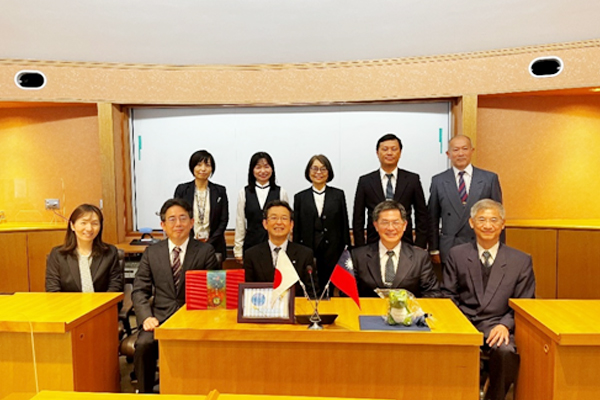
(Front row from left)
Prof. Kabayama, Director of the Center for Int’l Academic Programs, OU
Prof. Takeya, Geriatric Nursing, OU
Dr. Kamide, Dean of the Division of Health Sciences, OU
Prof. Wen-Jui Lo, President of TCUST
Prof. Robert Tsai, Dean of College of Health Technology and Management cum Director of Department of Information Technology and Management, TCUST
(Back row from left)
Associate Prof. Yamakawa, Geriatric Nursing, OU
Associate Prof. Christina Sung, Director of Graduate Institute of Long-term Care, TCUST
Associate Prof. Chi-Ping Chang, Director of Nursing Department, TCUST
Associate Prof. Mao-Chin Hung, Director of Department of Medical Imaging and Radiological Sciences, TCUST
Prof. Suzuki, Translator






